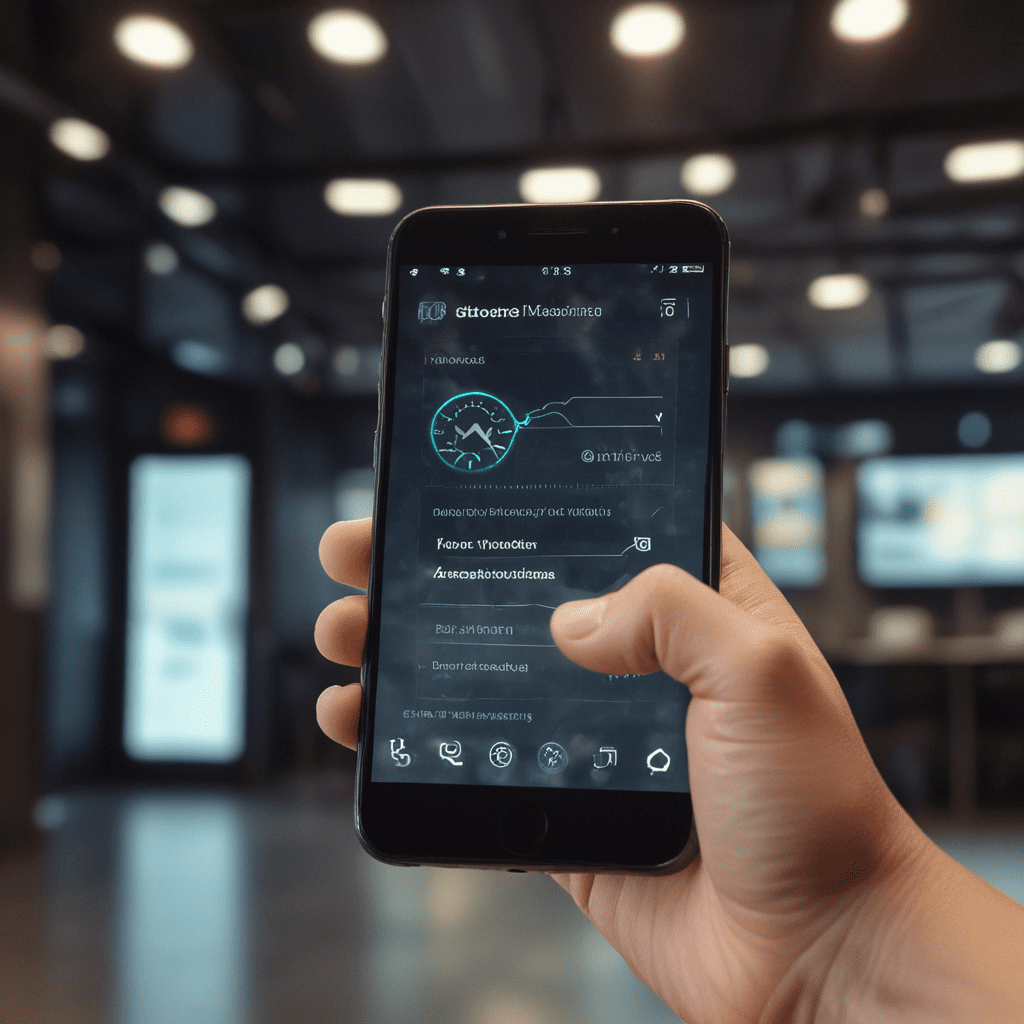
Introduction to Mobile App Development for Smart Manufacturing
The advent of mobile technologies has revolutionized various industries, and manufacturing is no exception. Mobile app development has emerged as a key enabler for smart manufacturing, transforming operations and enhancing productivity. Mobile apps empower manufacturers with real-time access to data, streamline processes, and optimize decision-making.
Benefits of Mobile Apps in Smart Manufacturing Environment
Mobile apps provide numerous benefits in smart manufacturing environments, including:
Enhanced Real-Time Data Visibility: Mobile apps provide real-time access to critical production data, allowing managers and operators to monitor performance remotely. This data transparency facilitates informed decisions and enables prompt responses to changing conditions.
Streamlined Process Automation: Mobile apps automate routine tasks, such as data collection, reporting, and inventory management. Automation reduces errors, increases efficiency, and frees up valuable time for more strategic initiatives.
Improved Collaboration and Communication: Mobile apps facilitate seamless communication and collaboration among team members, regardless of their location. Workers can access shared documents, exchange messages, and participate in virtual meetings, enhancing teamwork and coordination.
Increased Flexibility and Agility: Mobile apps empower manufacturers with the flexibility to adjust to changing production demands. They enable remote access to systems, allowing for quick responses to unexpected events or changes in customer orders.
Improved Decision-Making: With real-time data and insights at their fingertips, manufacturers can make more data-driven decisions. Mobile apps provide analytics and visualization tools that aid in identifying patterns, predicting trends, and optimizing production strategies.
Best Practices for Mobile App Development in Manufacturing
To ensure successful mobile app development in smart manufacturing, it is crucial to adhere to best practices such as:
- Focus on User Experience (UX): Design apps with intuitive interfaces, clear navigation, and contextual help to enhance user adoption and efficiency.
- Leverage Native Capabilities: Utilize device-specific features, such as GPS, camera, and sensors, to provide enhanced functionality and interactivity.
- Ensure Security and Data Privacy: Implement robust security measures to protect sensitive production data and comply with industry regulations.
- Integrate with Existing Systems: Ensure seamless integration with legacy systems and data sources to avoid data silos and maintain data consistency.
- Test Thoroughly: Conduct rigorous testing to identify and resolve potential bugs and ensure app reliability in real-world manufacturing environments.
Emerging Trends and Innovations in Mobile App Development for Smart Manufacturing
The field of mobile app development for smart manufacturing is constantly evolving, with new trends and innovations emerging to enhance functionality and capabilities. Some notable trends include:
- Artificial Intelligence (AI) and Machine Learning (ML): Integration of AI and ML algorithms enables predictive maintenance, process optimization, and anomaly detection.
- Augmented Reality (AR) and Virtual Reality (VR): AR and VR technologies provide immersive experiences for remote training, virtual inspections, and design visualization.
- Cloud-Based Mobile Apps: Cloud computing enables real-time data access and processing, facilitating collaboration and resource sharing.
- Edge Computing: Edge devices process data closer to the source, reducing latency and improving responsiveness in real-time operations.
- 5G Connectivity: 5G networks offer higher bandwidth and lower latency, enabling faster data transfer and real-time control over manufacturing processes.
Case Studies of Successful Mobile Apps in Smart Manufacturing
Numerous successful mobile apps have been developed for smart manufacturing, showcasing their impact on productivity and innovation. Some notable examples include:
- GE Digital's Predix Asset Performance Management: This app monitors and analyzes asset data to predict failures and optimize maintenance schedules, reducing downtime and improving efficiency.
- Siemens' Teamcenter Anywhere: This mobile app provides remote access to product lifecycle management (PLM) data, enabling collaboration and decision-making throughout the manufacturing process.
- PTC's Vuforia Chalk: This AR-based app facilitates remote troubleshooting and collaboration by enabling technicians to visually share instructions and guidance with experts.
- SAP's Manufacturing Execution (ME) App: This app provides mobile access to production data, allowing supervisors to monitor progress, make adjustments, and respond promptly to changes.
- Microsoft's Dynamics 365 for Manufacturing: This comprehensive app suite covers various aspects of smart manufacturing, including production planning, quality management, and inventory optimization.
Challenges and Solutions in Mobile App Development for Smart Manufacturing
While mobile app development offers significant benefits, it also presents certain challenges that need to be addressed to ensure successful implementation. Some common challenges and their potential solutions include:
- Data Security and Privacy: Concerns about data security and privacy can be mitigated through encryption, authentication, and compliance with industry regulations.
- Device Compatibility: Catering to a wide range of devices and operating systems requires careful planning and testing to ensure cross-platform compatibility.
- Integration Complexity: Integrating mobile apps with legacy systems can be complex, requiring proper planning, data mapping, and testing to ensure seamless data flow.
- Lack of Skilled Developers: The availability of skilled mobile app developers with expertise in manufacturing can be limited, necessitating training or partnering with specialized app development firms.
- Cost of Development and Maintenance: Developing and maintaining mobile apps can be expensive, requiring careful budgeting and ongoing resource allocation.
Future Outlook of Mobile App Development in Smart Manufacturing
The future of mobile app development in smart manufacturing holds immense promise, with continued advancements in technology and a growing appreciation of its benefits. Key trends to watch for include:
- Autonomous and Self-Optimizing Apps: AI-powered apps will autonomously monitor processes, identify inefficiencies, and adjust operations in real time.
- Personalized User Experiences: Apps will adapt to individual user preferences and roles, providing personalized dashboards and insights.
- Integration with Blockchain Technology: Blockchain-based apps will enhance supply chain transparency, secure data integrity, and enable new forms of collaboration.
- Low-Code/No-Code Development: Citizen developers with limited coding skills will be empowered to create custom mobile apps for specific manufacturing needs.
- Increased Adoption of Wearable Devices: Wearables will provide hands-free access to critical information and enable workers to interact with apps in new and innovative ways.
FAQ:
Q: What are the key benefits of using mobile apps in smart manufacturing?
A: Mobile apps provide enhanced real-time data visibility, streamline process automation, improve collaboration and communication, increase flexibility and agility, and facilitate data-driven decision-making.
Q: What are the essential tools and technologies used for mobile app development in manufacturing?
A: Essential tools include integrated development environments (IDEs), programming languages like Java, Swift, and Kotlin, cloud platforms, and mobile device management (MDM) tools.
Q: How can mobile apps be integrated with existing manufacturing systems and data sources?
A: Integration can be achieved through APIs, data gateways, and enterprise service bus (ESB) tools, enabling seamless data exchange between mobile apps and legacy systems.
Q: What are the common challenges faced in mobile app development for smart manufacturing?
A: Challenges include data security and privacy concerns, device compatibility issues, integration complexity, lack of skilled developers, and cost of development and maintenance.
Q: What is the future outlook for mobile app development in smart manufacturing?
A: The future holds advancements such as autonomous and self-optimizing apps, personalized user experiences, blockchain integration, low-code/no-code development, and increased adoption of wearable devices.

